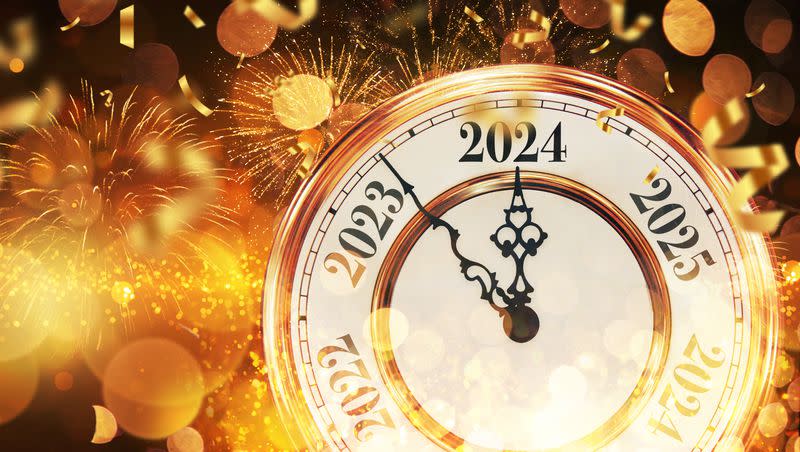Feeling nostalgic increases mental well-being and fosters social connection, studies show

New Year’s tends to evoke more nostalgia than other times of the year since it sparks reflection on the past year. To know what you want to change in the coming year, it’s important to think about what you’ve recently accomplished, the relationships you’ve built and how those things came to be.
Nostalgia is “a sentimental longing for one’s past” and a recent study published in Sage Journals found that most adults feel the emotion at least once a week.
“Not only is this type of reflection common, but it can also be good for us,” The Washington Post reported in its article on the research. “Psychologists are finding that nostalgia is not only universal, but also associated with better mental well-being.” Nostalgia helps us reflect positively on the past and feel optimistic about the present and future.
Feeling nostalgic is tied with a higher sense of purpose, better social integration and more positive self-regard. The European Journal of Social Psychology suggested that nostalgia does these things “by bridging one’s past with one’s present, a process reliant on social belongingness and acceptance.”
What is nostalgia’s influence on mental well-being?
Nostalgia is correlated with feelings of purpose and positive social relationships, according to a study published in 2023 in Elsevier. The study examined when feeling nostalgia is most common and found that people reported more nostalgia when going through times of “threat or distress.”
Nostalgia acts as a regulatory function to balance out trauma or threat. Two studies published in PsychNet found that negative mood and loneliness trigger nostalgia. Study participants said they typically saw themselves “as a protagonist in interactions with close others” or in major life events. The nostalgia described usually included negative life experiences that turned positive, ending in some sort of triumph.
Nostalgia can also nurture feelings of social connectedness since it helps an individual relive the past in constructive, idealized ways. As the European Journal of Social Psychology reported, “As a result, the individual experiences social connectedness, defined as a sense of belongingness and acceptance. Nostalgia indeed fosters social connectedness, typically operationalized as feeling connected with others, protected and loved.”
Though multiple studies have associated nostalgia with positive attitudes, Elsevier found that it also increases feelings of ambivalence — mixed emotions.
For example, after experiencing the death of a loved one, feeling nostalgic for the love, presence and guidance that person offered is a gentle way to grieve. Feeling nostalgic can offer a comforting sense of connection to the past and to the loved one even as it makes you miss your loved one who passed away.
A study published in Sage Journals found that nostalgia increased positivity “but did not significantly alter sadness,” thus creating higher levels of ambivalence.
How to increase feelings of nostalgia
In addition to the fundamental benefits of nostalgia — increased positivity and social connectedness — Harvard Business Review explained that writing about an important memory for several minutes before working on a project helped individuals produce more inspired and creative work.
Constantine Sedikides, a psychologist at the University of Southampton, told The New York Times that feeling nostalgic gave him “the strength to move forward.”
“Nostalgic stories often start badly, with some kind of problem, but then they tend to end well, thanks to help from someone close to you,” Sedikides said. “So you end up with a stronger feeling of belonging and affiliation, and you become more generous toward others.”
To increase positivity and to feel more connected to the people around you, here are several ways to feel more nostalgic:
Look through old photos.
Visit places you used to visit.
Keep a journal and read past entries.
Listen to music you loved when you were younger.
Read old books.
Make classic family recipes.

